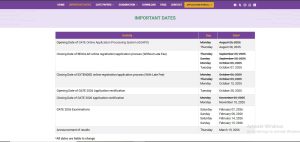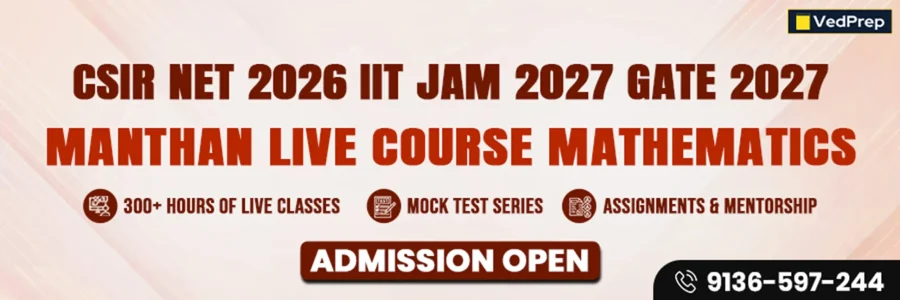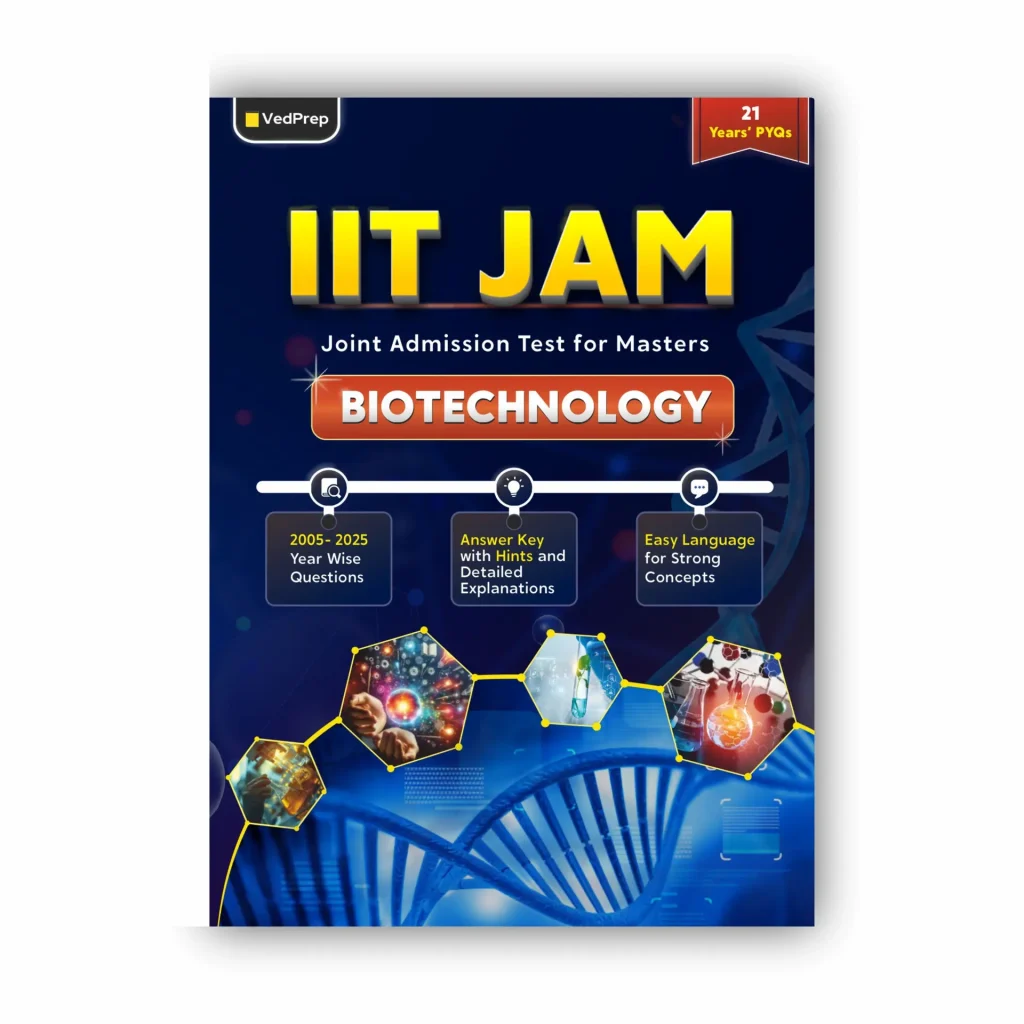GATE Exam 2026 assesses understanding of various undergraduate subjects in Engineering, Technology, Architecture, Science, Commerce, Arts, and Humanities. Indian Institute of Technology (IIT) Guwahati has released GATE 2026 notification along with GATE Exam 2026 poster on its Official website, gate2026.iitg.ac.in. As per schedule, GATE 2026 registration was began from August 28, 2025, through GOAPS portal at goaps.iitg.ac.in. Candidates must carefully check GATE 2026 eligibility criteria before filling out GATE application form 2026.
In this article we will provide details on GATE Exam 2026 including Eligibility Criteria, Exam Pattern, Syllabus, Subject list and more that will be beneficial for GATE Exam 2026 aspirants as well as GATE Exam 2027 too.
What is GATE Exam 2026?
GATE Exam 2026 is a national level exam held by IITs. It is for students who want to pursue postgraduate courses like M.Tech or M.S. in engineering, technology, and science at universities in India. GATE scores are also used by many public sector companies to hire employees. Gate Exam 2026 will check students’ knowledge in subjects like engineering mathematics, general aptitude, and their main subject.
GATE Exam 2026 is a computer-based test with different types of questions, such as multiple-choice, Multiple selective and numerical problems.
GATE full form: Graduate Aptitude Test in Engineering
| GATE Exam Date 2026 Overview | |
| Examination Name | GATE Exam 2026 |
| GATE Full Form | Graduate Aptitude Test in Engineering |
| GATE 2026 Conducting Body | IIT Guwahati |
| GATE 2026 Online Registration Commencement | 28 August 2025 |
| GATE 2026 Apply Online Last date Without Late Fees | 7 October 2025(Extended) |
| GATE 2026 Registration Last Date With Late Fees | 13 October 2025(Extended) |
| GATE 2026 Exam Date | 7,8,14 & 15 February, 2026 |
| Purpose of GATE 2026 Examination | Offering Admission to Higher Education (M.E./ M.Tech./ and Ph.D. Courses) PSU Recruitments through GATE |
| Application Mode | Online |
| Exam Mode | Computer-Based-Test (CBT) |
| Duration of Exam | 180 Minutes (3 Hours) |
| Number Of Questions | 65 |
| Exam Frequency | Once a Year |
| Number of GATE Papers | 30 |
| GATE Admit Card 2026 | January 7, 2026 |
| Validity of GATE Score | 3 Years |
| GATE 2026 Official website | https://www.iitg.ac.in |
GATE Exam Pattern 2026
GATE Exam Pattern 2026 is designed to test both theoretical knowledge and practical problem-solving abilities. GATE Exam 2026 consists of two major sections:
- General Aptitude (GA): This section is mandatory for all candidates and assesses their basic reasoning, verbal ability, and numerical skills.
- Subject-Specific Questions: These questions are based on candidate’s chosen engineering or science discipline, such as Electrical Engineering, Mechanical Engineering, Civil Engineering, Computer Science, etc. These questions test candidate’s subject knowledge in greater depth.
GATE Exam Pattern 2026 section wise with marks and time is given in the table below
| GATE Exam Pattern 2026 | |||||
|---|---|---|---|---|---|
| Paper Code | General Aptitude (GA) Marks | Compulsory Section | Subject Marks | Total Marks | Total Time* (Minutes) |
| AE, AG, BM, BT, CE, CH, CS, EC, EE, ES, IN, ME, MN, MT, NM, PE, PI, TF; Subject marks in these papers include questions on Engineering Mathematics (13 marks), which are paper-specific. | 15 | — | 85 | 100 | 180 |
| CY, DA, EY, MA, PH, ST | 15 | — | 85 | 100 | 180 |
| AR [Part A is Common and Compulsory for all; Part B1 or Part B2 can be selected during Exam. B1: Architecture or B2: Planning] | 15 | 60 | 25 | 100 | 180 |
| GE [Part A is Common and Compulsory for all; Part B1 or B2 can be selected during the Exam.
B1 – Surveying and Mapping or B2 -Image Processing and Analysis.] |
15 | 55 | 30 | 100 | 180 |
| GG [Part A is Common and Compulsory for all; Part B can either be Geology (B1) or Geophysics (B2) — which must be chosen at the time of Application.] | 15 | 25 | 60 | 100 | 180 |
| XE [Section A (Engineering Mathematics) is Common and Compulsory for all; Applicants must select any TWO additional Sections during the Exam] | 15 | 15 | 2 x 35 | 100 | 180 |
| XH [Section B1 (Reasoning and Comprehension) is Common and Compulsory for all; Applicants must select any ONE additional Section at the time of Application] | 15 | 25 | 60 | 100 | 180 |
| XL [Section P (Chemistry) is Common and Compulsory for all; Applicants must select any TWO additional Sections during the Exam] | 15 | 25 | 2 x 30 | 100 | 180 |
GATE Exam 2026 Types of Questions
GATE Exam 2026 feature three types of questions:
- Multiple Choice Questions (MCQs): These questions offer four options, with only one correct answer.
- Multiple Select Questions (MSQs): For these questions, there may be more than one correct answer, and candidates need to select all correct answers.
- Numerical Answer Type (NAT) Questions: These questions require candidates to type numerical answer using a virtual keyboard.
GATE Exam 2026 Marking Scheme
In Gate Exam 2026 each question carries either 1 mark or 2 marks, and distribution of marks will depend on subject paper. For most papers, General Aptitude will be worth 15 marks, with remaining 85 marks assigned to subject-specific questions.
GATE Exam 2026 marking scheme also includes negative marking for MCQs. If a candidate selects an incorrect answer in an MCQ, there will be a deduction of 1/3 mark for a 1-mark question and 2/3 marks for a 2-mark question. There is no negative marking for MSQ or NAT questions, making them less risky for candidates to attempt.
Also read: GATE CutOff
GATE Exam 2026 Important Details
- Number of Papers: GATE Exam 2026 will have 30 subject papers. Candidates can choose subject of their preference, and some interdisciplinary papers may be offered. It is important for candidates to choose subject that aligns with their academic background.
- Examination Centers: GATE Exam 2026 is conducted in selected cities across India.
- Admit Card and Results: Admit card for GATE Exam 2026 will be available on January 7, 2026 on official website for download. After exam, GATE Results will be declared on March 19, 2026, and candidates can check their scores to apply for higher studies or PSUs.

GATE Exam 2026 Subject List
GATE Exam 2026 Subject List includes various papers across engineering, science, and architecture fields. Each subject has a unique paper code for identification.GATE Exam 2026 papers and their corresponding codes are –
| GATE Exam 2026 Subject List | |||||
|---|---|---|---|---|---|
| S.No. | Subject Name | PaperCode | S.No. | Subject Name | Paper Code |
| 1. | Aerospace Engineering | AE | 16. | Mining Engineering | MN |
| 2. | Agricultural Engineering | AG | 17. | Metallurgical Engineering | MT |
| 3. | Architecture and Planning | AR | 18. | Petroleum Engineering | PE |
| 4. | Biotechnology | BT | 19. | Physics | PH |
| 5. | Civil Engineering | CE | 20. | Production and Industrial Engineering | PI |
| 6. | Chemical Engineering | CH | 21. | Textile Engineering and Fiber Science | TF |
| 7. | Computer Science and Information Tech | CS | 22. | Statistics | ST |
| 8. | Chemistry | CY | 23. | Biomedical Engineering | BM |
| 9. | Electronics and Communication Eng | EC | 24. | Engineering Sciences | XE |
| 10. | Electrical Engineering | EE | 25. | Life Sciences | XL |
| 11. | Ecology and Evolution | EY | 26. | Humanities and Social Sciences | XH |
| 12. | Geology and Geophysics | GG | 27. | Environmental Science and Engineering | ES |
| 13. | Instrumentation Engineering | IN | 28. | Geomatics Engineering | GE |
| 14. | Mechanical Engineering | ME | 29. | Naval Architecture and Marine Engineering | NM |
| 15. | Mathematics | MA | 30. | Data Science and Artificial Intelligence | DA |
GATE Exam 2026 Eligibility Criteria
GATE Exam 2026 is open to a wide range of candidates from diverse academic backgrounds. GATE Exam 2026 eligibility criteria include:
- Nationality: Indians and some foreigners
- Age Limit: No Age Limit
- Attempt Limit: No Attempt Limit
- Educational Qualification: Bachelors Degree or Final year candidates
Detailed GATE Exam 2026 Eligibility Criteria is provided in the table below
| GATE Exam 2026 Eligibility Criteria | ||
|---|---|---|
| Degree / Program | Qualifying Degree / Examination | Description of Eligible Candidates |
| B.E. / B.Tech. / B. Pharm. | Bachelor’s degree in Engineering / Technology (4 years after 10+2 or 3 years after B.Sc. / Diploma in Engineering / Technology) | Currently in the 3rd year or higher or already completed |
| B. Arch. | Bachelor’s degree of Architecture (5-year course) / Naval Architecture (4-year course) / Planning (4-year course) | Currently in the 3rd year or higher or already completed |
| B.Sc. (Research) / B.S. | Bachelor’s degree in Science (Post-Diploma / 4 years after 10+2) | Currently in the 3rd year or higher or already completed |
| Pharm. D.(after 10+2) | 6-year degree program, consisting of internship or residency training, from the third year onwards | Currently in the 3rd/ 4th/ 5th/ 6th year or already completed |
| M.B.B.S. / B.D.S. / B.V.Sc. | Degree holders of M.B.B.S. / B.D.S. / B.V.Sc and those who are in the 5th/ 6th/ 7th semester or higher semester of such a programme. | 5th/ 6th/ 7th or higher semester or already completed |
| M. Sc. / M.A. / MCA or equivalent | Master’s degree in any branch of Arts / Science / Mathematics / Statistics / Computer Applications or equivalent | Currently in the first year or higher or already completed |
| Int. M.E. / M.Tech.(Post-B.Sc.) | Post-B.Sc Integrated Master’s degree programs in Engineering / Technology (4-year program) | Currently in the 1st/ 2nd/ 3rd/ 4th year or already completed |
| Int. M.E. / M.Tech. / M.Pharm or Dual Degree (after Diploma or 10+2) | Integrated Master’s degree program or Dual Degree program in Engineering / Technology (5-year program) | Currently in the 3rd/ 4th/ 5th year or already completed |
| B.Sc. / B.A. / B.Com. | Bachelor’s degree in any branch of Science / Arts / Commerce (3-year program) | Currently in the 3rd year or have already completed |
| Int. M.Sc. / Int. B.S. / M.S. | Integrated M.Sc. or 5-year integrated B.S.- M.S. program | Currently in the 3rd year or higher or already completed |
| Professional Society Examinations* (equivalent to B.E. / B.Tech. / B.Arch.) | B.E. / B.Tech. / B.Arch. equivalent examinations of Professional Societies, recognised by MoE / UPSC / AICTE (e.g. AMIE by the Institution of Engineers-India, AMICE by the Institute of Civil Engineers-India and so on) | Completed Section A or equivalent of such professional courses |
| B.Sc. (Agriculture, Horticulture, Forestry) | 4-years program | Currently in the 3rd/ 4th year or have already completed |
GATE Exam 2026 Syllabus
GATE Exam 2026 syllabus varies by discipline, but it generally tests a candidate’s understanding of undergraduate-level engineering and science concepts. Each paper includes a General Aptitude section common to all, consisting of 10 questions (worth 15 marks) assessing verbal and numerical ability.
GATE Exam 2026 Syllabus is mainly divided into three categories like
- General Aptitude
- Engineering Mathematics
- Core Subject
Some papers include Engineering mathematics as an additional part in Core subject. While General Aptitude is compulsory for all papers.
GATE Exam 2026 Career Opportunities
GATE Exam 2026 plays a crucial role in shaping future careers of aspiring engineers. It serves not only as a tool for securing admissions to top institutions but also as a key for opening doors to lucrative job opportunities in public sector companies. Many PSUs such as ONGC, NTPC, and GAIL recruit candidates based on their GATE scores, offering them attractive salary packages and career growth.
GATE scores are also used for various research roles and positions in government organizations like DRDO, BARC, and ISRO, which further boosts research and development sector of country.
| GATE Application Form 2026 | GATE Notification 2026 | GATE Exam Date 2026 |
| GATE previous Year Question Papers | GATE Exam Preparation | GATE Books |
GATE Exam 2026 FAQs
What is GATE exam 2026?
GATE exam 2026 is a national-level exam for admission to postgraduate programs (MTech, ME, PhD) and jobs in PSUs. It tests engineering and science knowledge.
Who is eligible for GATE exam 2026?
Undergraduate students in the third year, graduates, master's degree holders, and those pursuing integrated degrees are eligible for GATE 2026.
What is the GATE exam pattern 2026?
GATE exam 2026 consists of General Aptitude and subject-specific questions, including MCQs, MSQs, and NATs, all conducted in a computer-based format.
What is the marking scheme for GATE exam 2026?
GATE exam 2026 has 1-mark or 2-mark questions. Negative marking is applied for MCQs. No negative marking for MSQs and NATs.
How many papers are there in GATE exam 2026?
GATE exam 2026 offers 30 subject papers. Candidates choose their preferred subject based on their academic background.














